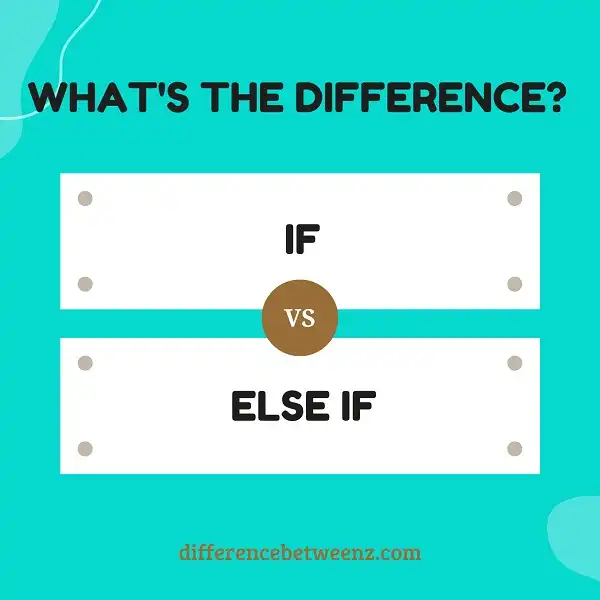If and Else If statements are used in programming to choose between different paths of execution, depending on the value of a given expression. In most languages, If is the keyword for a basic conditional statement, while Else if is an extension to that statement which allows for more than two paths of execution. While the two constructs are similar, there are some important distinctions between them. In this article, we’ll take a closer look at those differences, and see when it’s best to use each one.
What is If?
If is a conditional statement that allows a programmer to define what should happen given a certain condition. If the condition is met, the code within the statement will be executed. If the condition is not met, the code will be skipped. If statements are typically used to check for user input, perform calculations, or to make decisions based on certain criteria. If statements can also be nested, meaning that one If statement can contain another If statement within it. This can be used to create more complex conditions. If statements are an essential part of programming and are used in many different types of applications.
What is Else If?
- Else If is a statement in programming that allows you to test multiple conditions and execute different code for each. It is typically used after an if statement, and uses boolean logic to determine which code should be executed.
- Else if statements can be nested, meaning that you can have multiple else if statements within another else if statement. Else if statements are often used when there are multiple possible outcomes, and you want to execute different code for each outcome.
- For example, you could use an else if statement to test whether a user inputted a number between 1 and 10, between 11 and 20, or greater than 20. Depending on the outcome, you could then execute different code. Else if statements can make your code more concise and easy to read, and can help you to avoid having long chains of if statements.
Difference between If and Else If
If and Else If statements are both used to execute different code blocks based on whether a specified condition is true or false. The main difference between If and Else If is that If statement executes a code block if the specified condition is true while Else If statement executed a code block if the If statement before it is false.
That means an If statement can stand alone while an Else If statement must come after an If or another Else If statement. Also, there can be multiple Else If statements in a single program but only one If statement.
An If statement alone can also execute multiple code blocks one after another if multiple conditions are true. However, in that case, all the code blocks associated with all the true conditions will execute even if some of the later code blocks are not required to be executed.
On the other hand, using Else If statements, we can control which code block needs to be executed next since an Else Ifstatement will only execute its associated code block if the If statement before it is false. Therefore, multiple Else If statements can be very useful when we need to execute only one specific code block out of many possible code blocks.
Conclusion
Else if statements are useful for checking multiple conditions at the same time. They allow you to choose a specific course of action based on whether or not all the conditions are met. In contrast, if statements only check one condition at a time. This makes them less efficient, but they can be used when you want to execute a certain set of instructions only if a certain condition is met.


